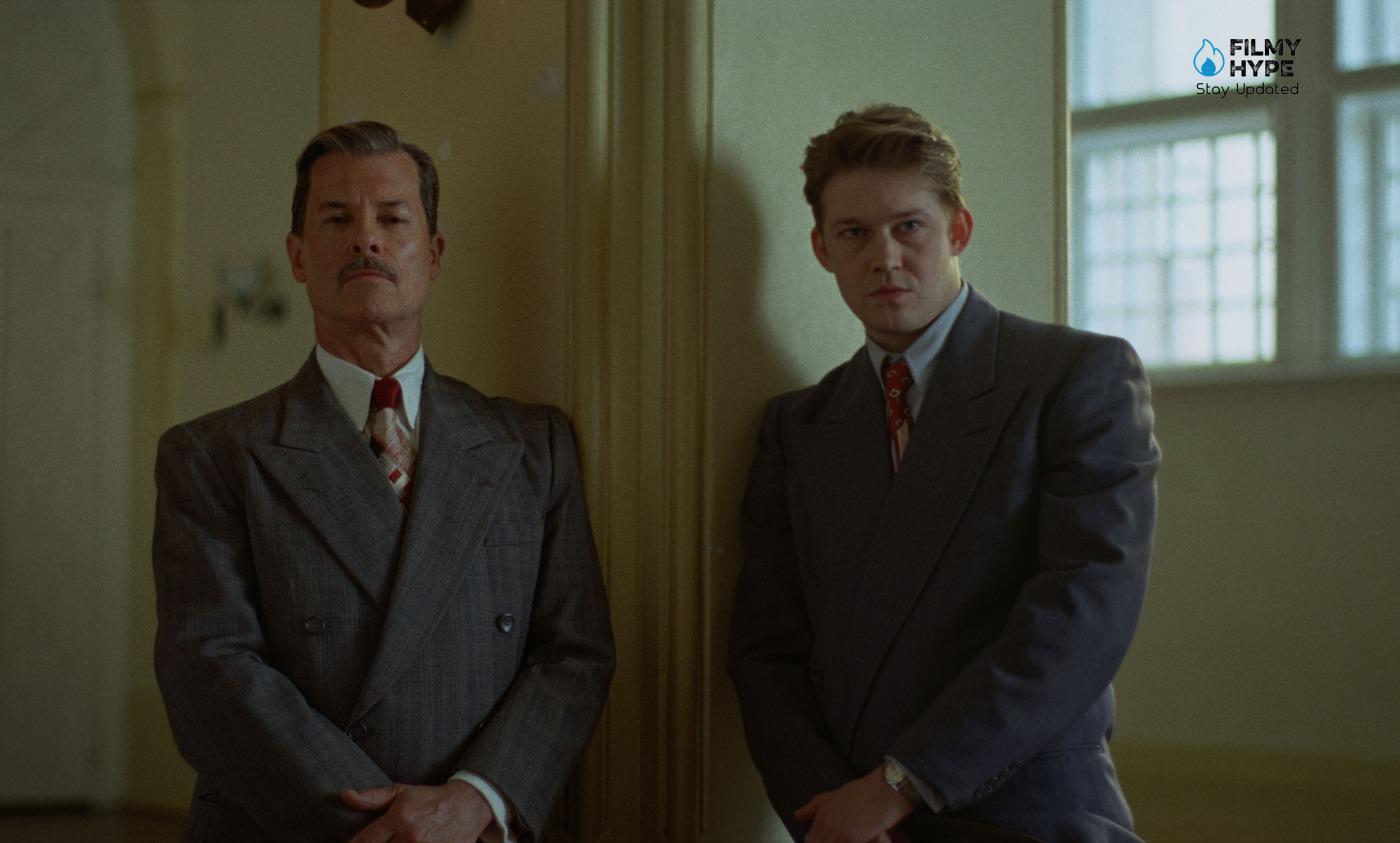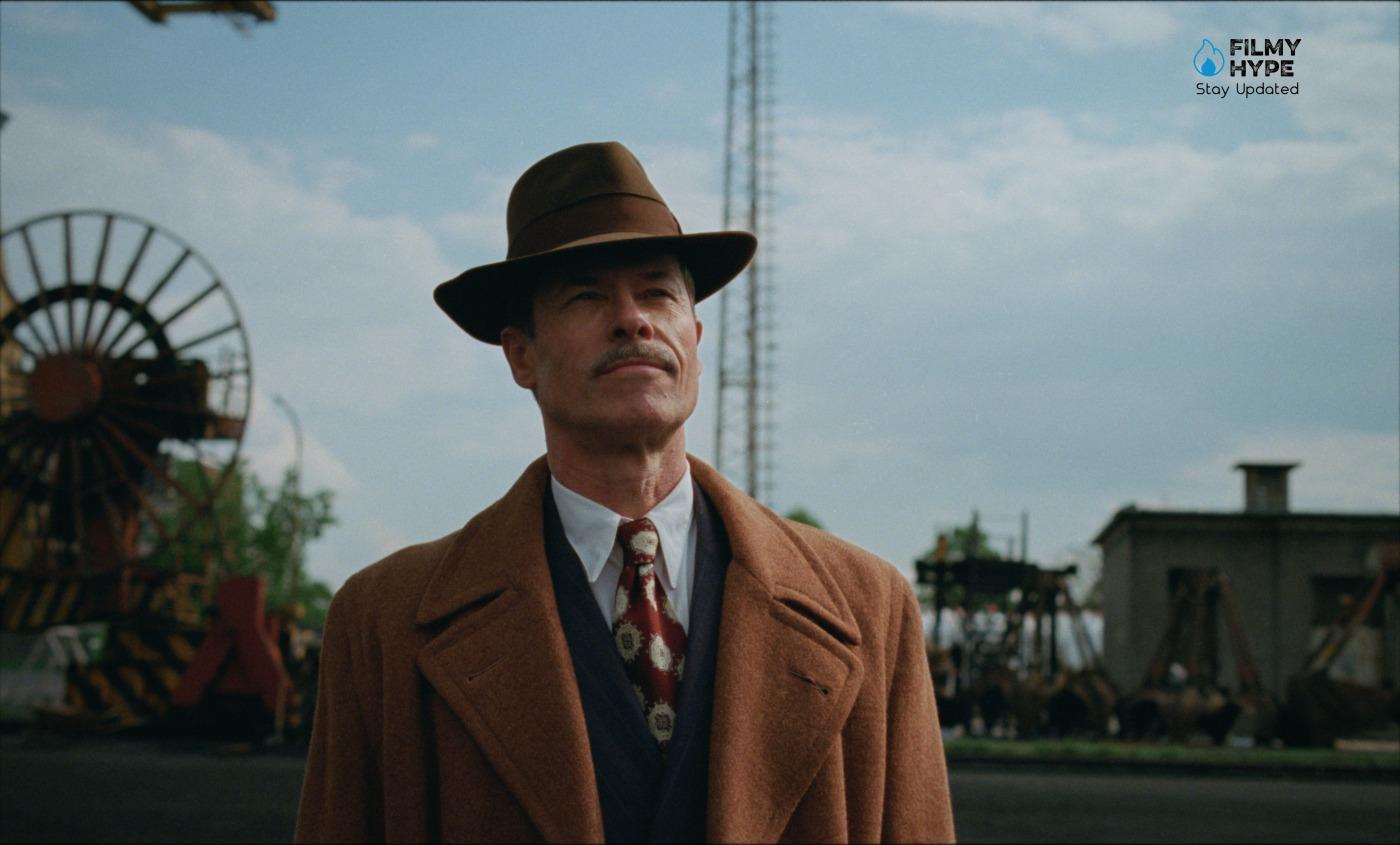The Brutalist Movie Review: Film That Truly Goes Beyond the Rules of Space and Time!
The Brutalist has been long awaited, since 2018 Brady Corbet’s project had appeared as something potentially truly intriguing, and despite delays, modifications, and continuous re-casting, it finally arrived, starting from February 6, in cinemas after being presented at the Venice Biennale last year and having obtained 10 nominations for the 2025 Oscars. Adrien Brody is the protagonist of an ambitious film, formally Majestic, which combines the classicism of Hollywood with the desire to give us a story capable of telling us about America with a critical yet fascinating look. Ambitious and visionary architects, perfectionists, and at the same time extremely fragile. Genes that shape and destroy worlds redefine geometries by setting the dynamism of life and transcending the rules of space and time. These are the protagonists of two of the most important films we have seen this year in the competitions of the most important film festivals. The first is Megalopolis, the impossible film that Francis Ford Coppola managed to create by giving all of himself. A divisive work like a few at the last Cannes Film Festival, in which Adam Driver plays the role of a brilliant architect who wants to return New York to his citizens after a devastating disaster.
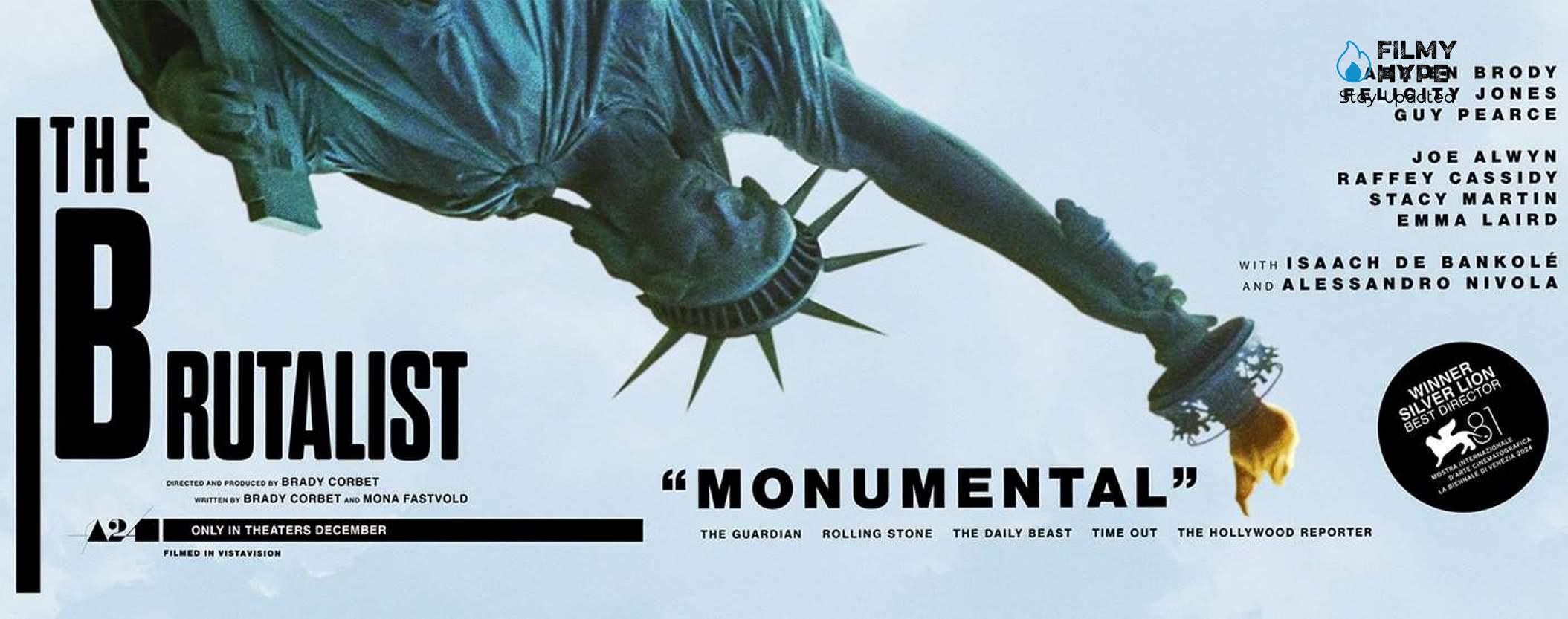
The second, The Brutalist, marks the return of Brady Corbet in competition at the Venice Film Festival six years later Vox Lux. An equally grandiose and immense project, which is here today at the Lido to try to conquer a golden Lion that would smell of history. Presented by the director Alberto Barbera as “a masterpiece”, the film follows the thirty years of the life of László Tóth, a Jewish architect who emigrated from Hungary to the United States in 1947 to escape the holocaust and, as we will see in our review of The Brutalist, to rebuild a new life in the land of (apparent) opportunities. The Brutalist moves on a thread stretched between the great events of the twentieth century and the almost biographical intimacy of a story that (despite what one might think) is not biographical, but that is built based on a raw, very detailed, and rational realism, where all the elements of that puzzle which is László Tóth find finally a place and originate an identity so credible that it is hard to believe that it is the result of an invention. Tell the story of one to tell that of all in short, trying not to let the individual prevail over the whole and that the whole does not engulf the individual.
The Brutalist Movie Review: The Story Plot
“The Brutalist” revolves around the story of László Tóth (Adrien Brody), a Hungarian Jew who survived the Holocaust, and reaches his cousin Attila (Alessandro Nivola) in New York, at the end of the year ’40 which begins a new migratory wave in the United States. László was a very famous architect in pre-war Europe, one of the greatest exponents of the Bauhaus, but with Nazism, everything was over. Now he hopes to bring his wife Erzsébet (Felicity Jones) to America and find his way, but it is not easy. Foreigners are treated with hostility, and he struggles to integrate, at least until his talent as an architect and designer is noticed by the eccentric billionaire Harrison Lee Van Buren (Guy Pearce), who is determined to finance ambitious architectural projects in Pennsylvania which is always more home of bricks and steel. But László, in addition to having to face great loneliness and a drug addiction inherited from the war, must fight against the perplexity of those around him towards his new ideas, racism, and the traumas left in him by the war tragedy. That project, in which his genius pours, that building wanted by Van Buren, will also become a showdown to himself.
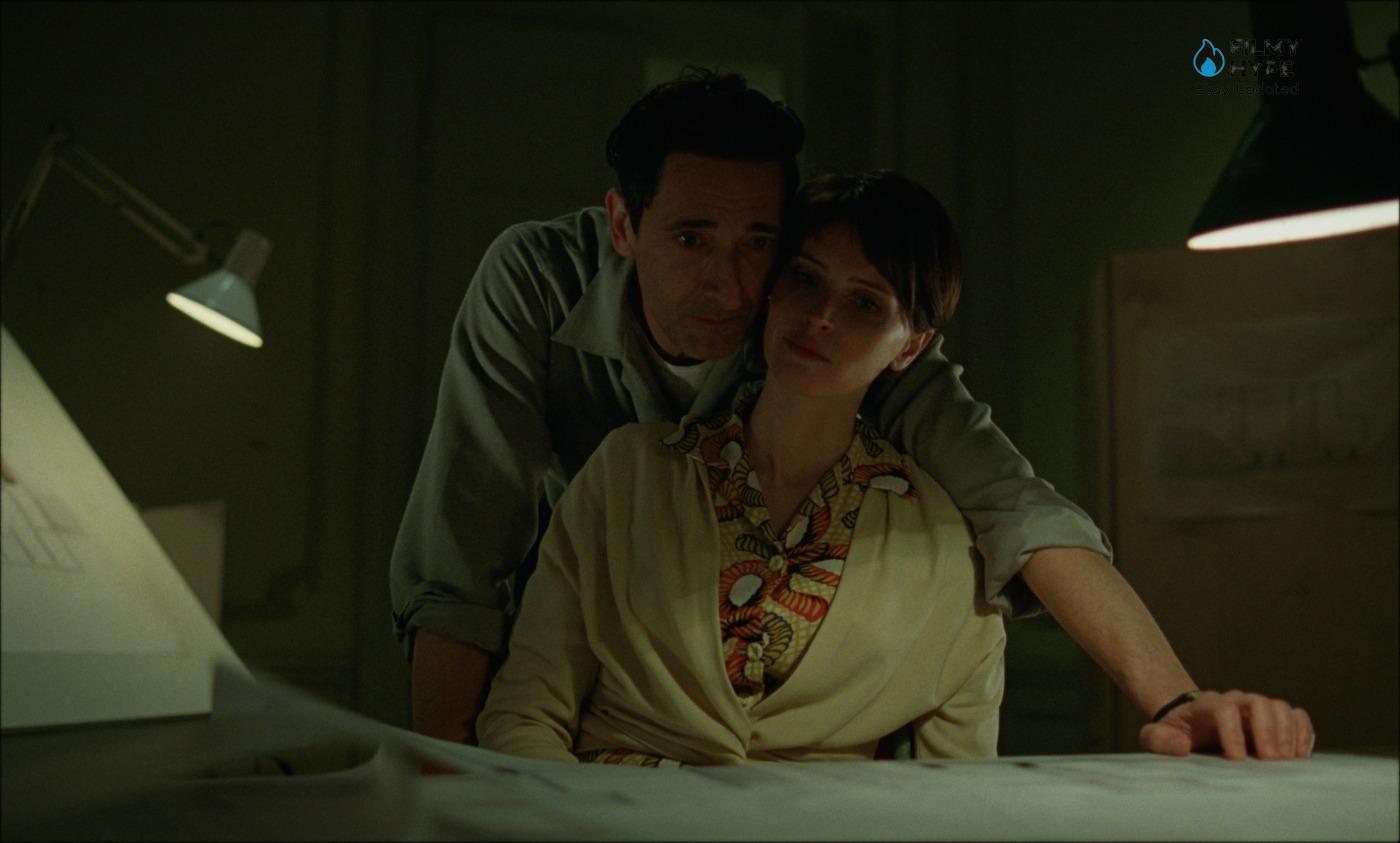
“The Brutalist” is a crazy race towards greatness, with a gigantic building to be built that we understand could mark for the protagonist the long-awaited ascent or its definitive ruin. In Mostarcelo, “The Brutalist” quickly becomes the best film seen so far in the Official Competition at Venice 2024, which has shown several good films, but no high-pitched, none at least in comparison to what Brady Corbet offered in this gigantic, visceral odyssey. The director overwhelms the viewer both from a visual point of view, with a 70mm VistaVision shot very much, and narrative. The screenplay written by Corbet with Mona Fastvold connects to masterpieces shot in America full of hopes after the Second World War by directors such as Stern, Seaton, Capra, and Wyler, in short, the narrative on hopes, rebirths, and rediscovered. But “The Brutalist” becomes both a tribute to the grandeur of that cinematic moment and that silent humanity, as well as a total deconstruction of the rhetoric of the American dream, of the United States as the home of hope. Here there is little hope, if not that of toxic and galloping individualism, of the absence of scruples that accompany this America that prays and, in the meantime, counts the money, which creates churches and highways, symbols of an absolutism of capital that does not respect nothing and nobody.
The Brutalist Movie Review and Analysis
“The Brutalist” has a magnificent cast, but most of all he is: Adrien Brody. The late Pianist confirms himself as one of the most incredible interpreters of his generation, his László is everything and the opposite of everything, he is miserable and witty, he is naive and cunning, he is triumphant and very fragile. In his desperate search for revenge, Corbet outlines a mix of the various hungry for hope that American cinema has always chosen as a symbol of that mirage called the American Dream. Very few films have managed to remove the patina of rhetoric, of triumphalism, from the description of that class, racist, and ruthless America, in which László tries how he cannot sink. The dialogues are perfect for timing and meanings (both direct and indirect), and then there is the incredible photograph of Lol Crawley who tends to take away depth from a film that is intimate, claustrophobic, even in gigantic metropolises or large spaces. Architecture is the mirror of a contrast that “The Brutalist” elevates to the film’s great theme. The clash concerns past and present, matter and light, right and wrong, and strength and weakness. Guy Pearce giants with his Van Buren, behind which are the many capitalists elevated to divinities from America, with his spoiled and decadent offspring. He is the face of that deception, of the false American nobility made of oil and steel, of bricks and tricks.
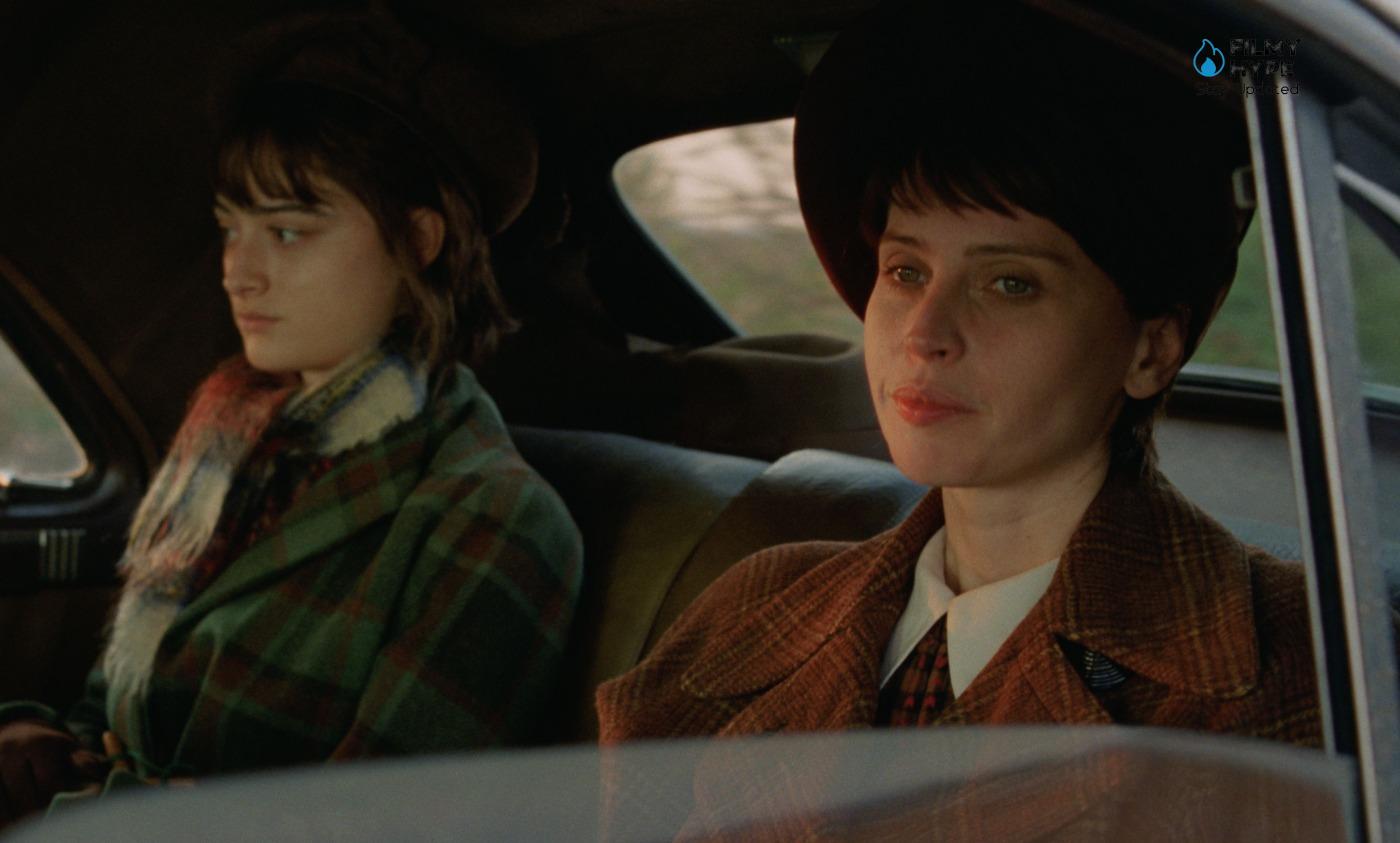
Jones is sublime with her broken but indomitable Erzsébet, twisted body in which the survivors’ guilt is stirred, the destruction of family perfection. “The Brutalist” is an incredible, gigantic, and mammoth film for formal perfection and strength of the events it contains, as it manages to keep every authentic and credible character, it also knows how to give a tension wrapped in bitter irony, with its protagonist becoming a means for a deep connection with Stanley Kubrick’s vision of History. He too looked at the individual as a means by which to express a constant in eternal cyclical repetition. With its ability to be classic yet revolutionary, Brady Corbet’s river film (3 abundant hours in all) is a candidate for the absolute protagonist of Venice 2024, of which it represents up to now the maximum in terms of formal perfection and ability to be engaging, as well as authorial and personal in form. Above all, this is a film that puts the experience of cinema at the center as a grandiose event, an emotional show through images, with the ability to be truer than truth using fiction. If he left the Lido without important recognition, it would truly be a crime.
From start to finish, The Brutalist highlights the dark side of the American Dream, which slowly turns into a nightmare and then into a swirl of drugs, abuse, and violence. All packed by a nauseating and superficial interest in appearances, moralism, and modesty that never existed and will never exist. The cruel reflection on the failure of the idea of an America open to all and a friend of all is supported by a series of aesthetic choices that disturb, stun, and surprise at the same time, exploiting every technical component of the cinematographic medium – from assembly to light management, from the composition of the shots to transitions, from sound effects to the choice of colors – to convey the profound and overwhelming discrasia that exists between the reality of contemporary America and its (self) representation. From a purely visual point of view, The Brutalist is a visionary experience, of an unparalleled variety and creativity in recent times: experimentation and the continuous search for virtuosity to hit the viewer are perhaps facilitated, or at least made necessary, by the story that is at the base of the film.
One cannot tell the life of an architect – of a brutalist, moreover – without moving away from visual conventions, repudiating and bending them for their purposes with a spirit of rupture that looks to the world of figurative arts and architecture itself more than that of cinema, adopting a bold and eclectic point of view, however truly revolutionary. If the relationship between László and Van Buren is the metaphor for the failure of the American Dream, the one with Erzsébét is the symbol of true and profound love, human because fragile, tempered by the difficulties of a life that the average spectator could not even appear in his worst nightmares and, therefore, sometimes even unintelligible and hermetic. Hermeticism that never flows into the surreal: the characterization of the characters we said at the beginning, is so complex and layered that it seems to fish out from life stories, leaving viewers to wonder if The Brutalist is a biographical film, or at least if it is taken from a true story. But no, it is not.
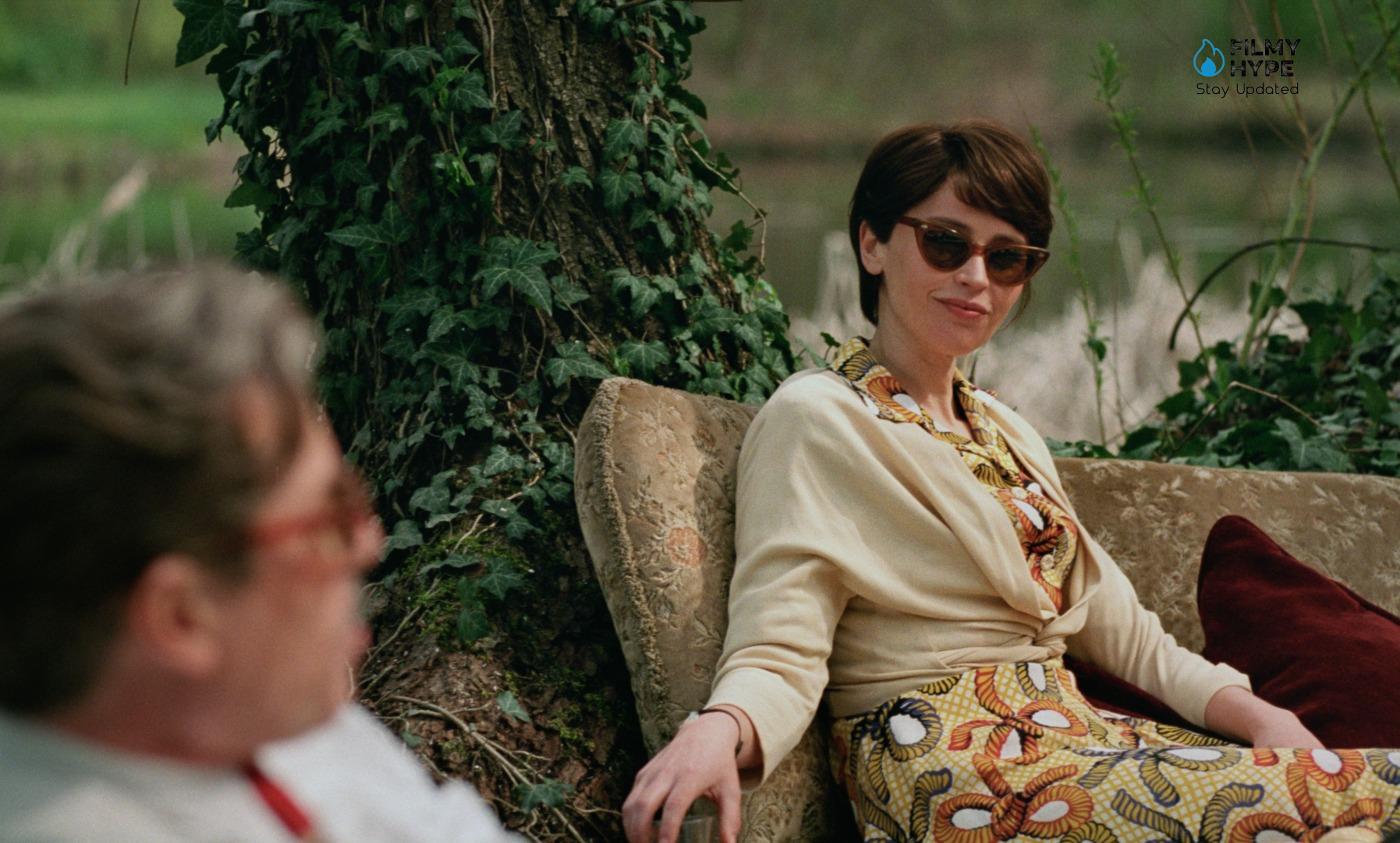
However, it is a test of how excellent writing can approach the truth, especially if supported by a cast – Adrien Brody and Guy Pearce in particular, but also Felicity Jones – in a state of grace. Biography or not, The Brutalist is a new milestone in historical cinema, a work that, like an accordion, alternates a universalistic inspiration with a closure on itself, exploring the most intimate secrets of the psyche of its characters and, at the same time, reflecting on a still indecipherable moment of the contemporary. It is a film aware of its importance and of the task that has self-imposed, which embraces it to the end and which he lets himself be carried away by his gigantism, avoiding any fear of a confrontation – which is absolutely on equal terms – with classics like Schindler’s List and even Once Upon a Time in America.
So yes, The Brutalist is a film that makes you want to risk the word that starts with the c: masterpiece. It is not completely, without if and without but, but it goes so close that already in his first vision, it is not so risky to speak of a huge, gigantic film, completely different from what has been seen so far in this cinematographic year. Among other things, it is a 36-year-old with a series of ambitious but never fully successful films. Brady Corbet is the personification of that phrase that critics often love to spend, combined with the special surveillance label: “is a great talent that when he guesses the right film will do something epochal”. Many excellent directors can never really guess a movie. Corbert The Brutalist instead guessed it all right. He wrote it together with his usual collaborator Mona Fastvold and directed it with the author’s attitude. Amid the pandemic, hit by an infinite series of recasting and problems, rejected any compromise: the film is presented in 70mm film, with a duration of 215 minutes (complete with an intermission perfectly integrated into the story of a quarter of an hour, which in turn gives a particular experience in the room).
The director hinted that even in the hyper-cinephile world of festivals nobody wanted to bet on such a demanding film, at least until the director of the exhibition Alberto Barbera opted for it and put The Brutalist in competition. Of course, an entire week of programming is missing, but statistically speaking films are not seen every year, so it is almost impossible to imagine that a single edition of the exhibition contains two. In other words: The Brutalist the Golden Lion can only lose it. What makes this film so extraordinary? First of all, his living out of time, and his pursuit of cinematic purity makes him look like a classic of other times, never touched by serial influences, by the tastes and drifts of contemporary cinema. It is not easy, it is not seductive, it does not reassure the viewer, and it is not familiar and approachable. Uncomfortable great comparisons with historical titles of the past because it does something that type of classics dares (goes) to try to keep together all human experience, what is existential.
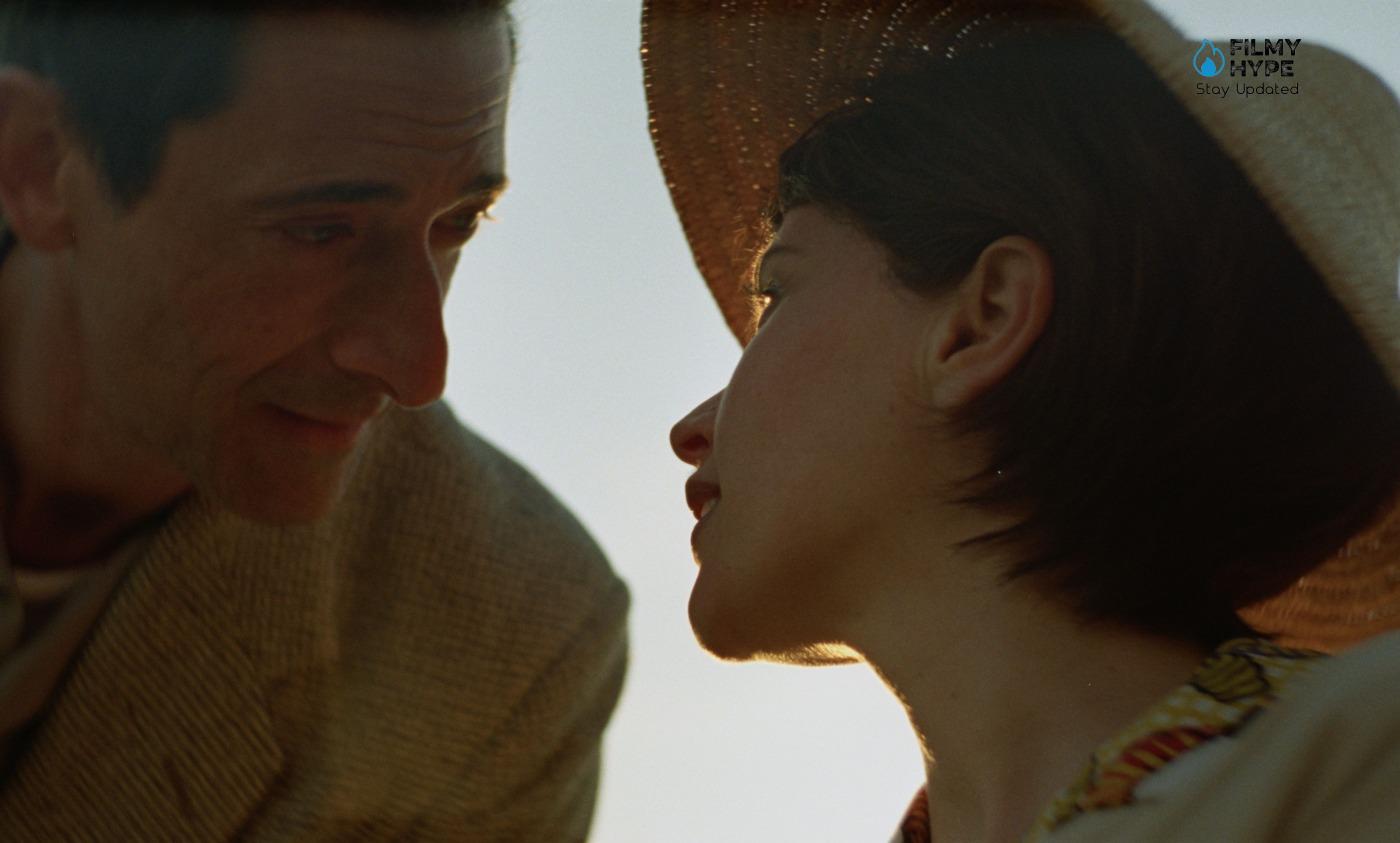
Inside The Brutalist there is everything that characterizes human life: being alive (even if you are survivor), facing death, physical pain, mental malaise, pure love, and more carnal desire, up to his violent aberrations. The primordial violence of family ties proper to the Greek tragedy (fathers, and children fascinated and horrified by their parents), that is inherent in a class-based society. Pleasure, horror, war, resistance: there is an anarchist partisan and sculptor who leaves his valley only once in his life, to go with his hands to strike the corpse of the leader hanging upside down. Can not miss the spiritual dimension: God in multiple monotheistic meanings of the term, his absence, his transformation into an instrument to despise. There is all that humans use as a blunt weapon to divide into tribes: race, religion, sexual orientation, appearance, and nationality.
To synthesize such high and deep themes, a filter, and a lens is often needed. The Brutalist is the result of a combination of three different lenses through which humanity scrutinizes. The first is that of ’Holocaust. The protagonist couple survived the experience of the concentration camps. As in The Zone of Interest, we see nothing of what happened in the fields, we are not told anything about what the two have suffered, yet The Brutalist is the story of how two survivors spend the rest of their lives coming to terms with what happened to them, to renegotiate their love story in the light of a traumatic experience that both lived but separately. She consoles her husband by saying “They only hurt us in our physical body”, yet the film is a continuous exploration of the wounds of their souls. The second lens is that of architecture, already mentioned by the title. In this sense, The Brutalist is all that Francis Ford Coppola’s Megalopolis wanted and hoped to be. The protagonist of the film is a brilliant Hungarian brutalist architect who grew up at the Bauhaus school, survived the Third Reich, and took it with a great commission on US soil. For László Tóth (Adrien Brody) “there is no better metaphor than the life of its construction”.
Its buildings are imagined to remain uncorrupted “in the face of the spirit of the time, only temporarily disqualified and condemned by a Reich who judges them ”not Germanic enough“. The third lens through which humanity reads is that of the United States which, with a dizzying reversal, becomes the true source of all evil in a film whose premise is the Holocaust. László finds refuge in the United States after the war: the first part of the film takes place between 1947 and 1952 in Pennsylvania, the “crucial” state of the States for industrial production, steel, for manufacturing. The film seems to be with an inverted perspective on the Statue of Liberty: it seems like the euphoria of those who have just been saved and welcomed, but three hours later, when a cross of light will be reversed, we will understand what Corbet meant. The Brutalist is one of the most effective stories ever written about the experience of migration and the country that – in theory – makes hospitality and a cultural melting pot part of its identity.
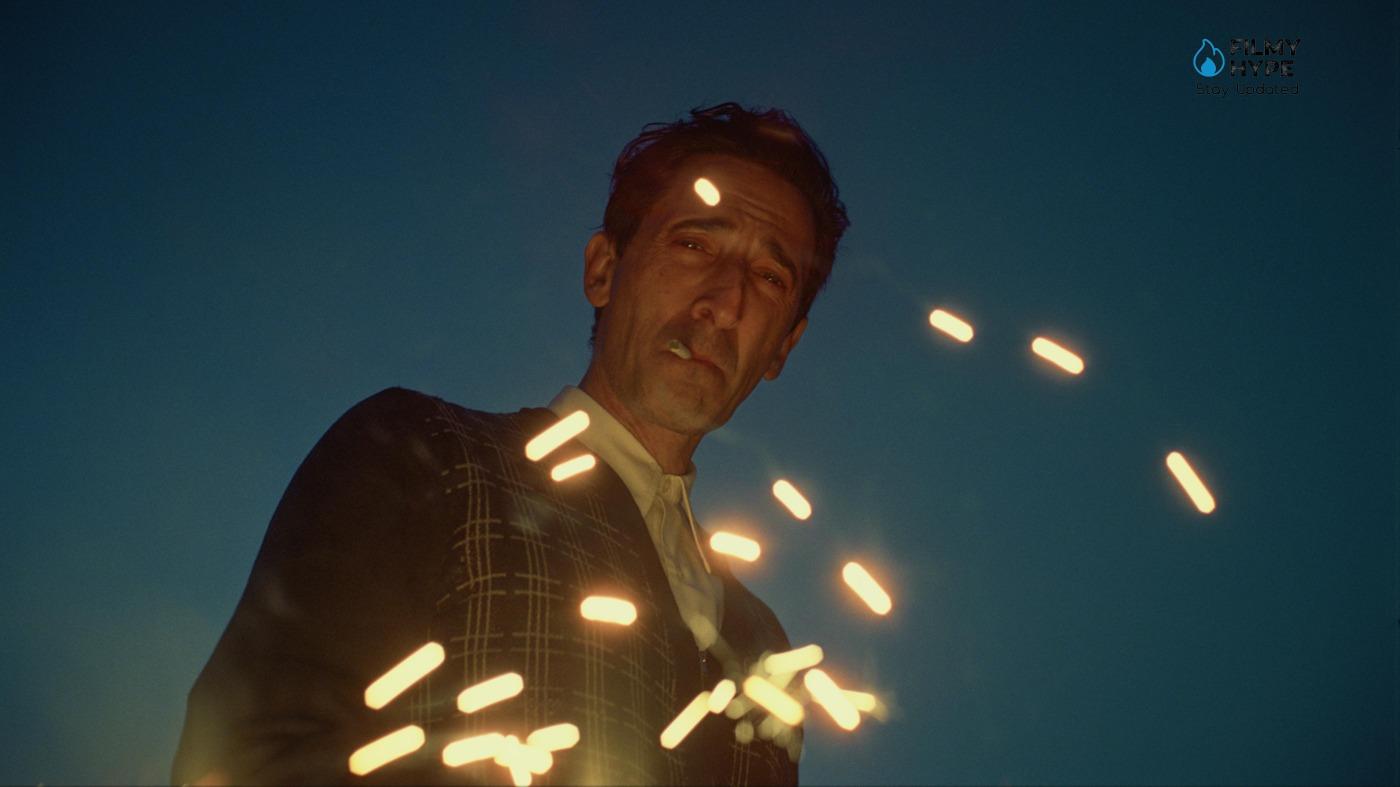
László soon discovers that the United States welcomes only those who are willing to water down and hide their diversity, changing their surname, religion, and identity. Thanks to his genius, he conquers the highest degree of hospitality: an American character will tell him, with horror, that he “is tolerated”. The first part of the film is covered by the epistolary with his wife Erzsébet Tóth (Felicity Jones), to whom he is desperately linked, but to whom he cannot meet. In the second part, their love of the past – very deep, totalizing, innervated by pain, and made of brutal understanding and frankness – focuses even more on the rottenness in the kingdom of America. A land of dreams and possibilities under which very strong classism throbs, in which the Tóth couple are at the same time humbler and more forced to beg, but despised for the superiority of their beauty, for their culture, for their roots of the old continent. The worst wound – physical and spiritual – is inflicted by the United States, which Erzsébeth and the film will condemn as rotten, corrupt, and irredeemable.
The characters of The Brutalist are all, somehow, archetypes and complexes. Above all, however, the most Luciferian, contradictory, and epochal is Guy Pearce’s tycoon Harrison Lee Van Buren, the very embodiment of the contradictions and meanness underlying the American soul. Terrible father, vulgar businessman, millionaire patron magnanimous but devoid of genius to understand and instinctively appreciate art, builds a codependency of rare toxicity with both spouses Tóth, who would like to manipulate until he is admired by them but ends up tearing to pieces. He is the citizen Kaine of the film. László is his counterpart, the embodiment of the spirit of the old continent: it survives its past by yielding to vices, but on what is important it proves to be whole, spiritual concerning the vulgarity of the material and capital, capable of solidarity humanity that money, capitalism, the US model reduce to mere etiquette. The praises of Adrien Brody, one that the role of life had already hit the spot with Polanski’s pianist. Here he manages to overcome himself, embodying with an unheard-of power, violence the tormented soul of László who stops acting and is all a bundle of nerves, artistic inspiration, suffering body, and soul. Adrien is.
It seems to see him already holding an Oscar. Pearce is no different. The Brutalist is a fantastic candidate for best film of the year because it expresses itself on an extraordinary level in every technical sector. Music and sound mix immerse in a palpable atmosphere, photography by Lol Crawleyuses a magnificent and sometimes sinister green staircase, mounting Dávid Jancsó pair with Corbet’s splendid, wonderful direction. In such a huge, monumental film, even the smallest smudge catches the eye. It is true for example that the second part of the film does not have the verve of the first. However, the start of the film is so out of scale by magnitude that this does not mean that the second part is no more than excellent. Or maybe it’s just that it’s more intimate, more intimate, even more brutal than the first, crowning in a scene of pure violence that also shatters the viewer’s heart. It should also be noted that the film knows how to be so full of underground, tense, unexpressed energy while jumping at the foot of the easy and tantalizing part with which this kind of story starts.
In The Brutalist **** youth, light-heartedness, and coming of age are completely missing, the first few times. We meet our characters who are already bent by roughness, adults, and almost old: yet their story begins from there. If the start is amazing, the lock is the real Achilles heel. The film is divided into three parts: the last one lasts a handful of minutes and is so radically different in tone and aesthetics from what came first to leave dismayed. Its function is to provide us with the reading key of the building whose construction is the basis of the film, the great impossible work that consumes the lives of the protagonists. The resolution itself is touching and up to everything else, but so unpleasantly served to the viewer, so didactic, that it seems to clash in a film that does an excellent and painstaking job even in the graphics of the head and tail titles. It is not easy to judge films within the reach of The Brutalist at first glance. What is certain is that Corbert has made a monumental, majestic, magnificent film, one of those that has been closest to the concept of a masterpiece for many years now.
The Brutalist Movie Review: The Last Words
The Brutalist is, first of all, a work that breaks down, analyzes, and finally turns the idea of the American Dream and all the mythology around it like a sock. It is a harsh denunciation of a violent and profiting society, greedy and cunning, amoral and moralistic. It is a showdown of the modern United States with the poison that has slowly consumed its social fabric over the past half-century. Using a paradigmatic story to tell an entire historical period, Brady Corbet draws the attention of his audience to the profound causes of the decline of the American ideal in the modern world. This creates a new epic, which fades from the narratological categories of the historical novel and the aesthetics of architecture and art of the early twentieth century: it is an epic once again focused on the last, on the difficulty, on the complexity of a world that is far darker than a superficial gaze can make one believe. Brady Corbet has made a film that truly goes beyond the rules of space and time, which rises to a working monument capable of almost touching the divine. A film that also redefines a certain type of independent cinema resulting from the total artistic freedoms of its authors, however, conceived as a gigantic film event that must have the opportunity to intercept the general public.
Cast: Adrien Brody, Felicity Jones, Guy Pearce, Joe Alwyn, Raffey Cassidy, Stacy Martin, Emma Laird, Isaach De Bankolé, Alessandro Nivola
Directed By: Brady Corbet
Filmyhype.com Ratings: 4.5/5 (four stars)


